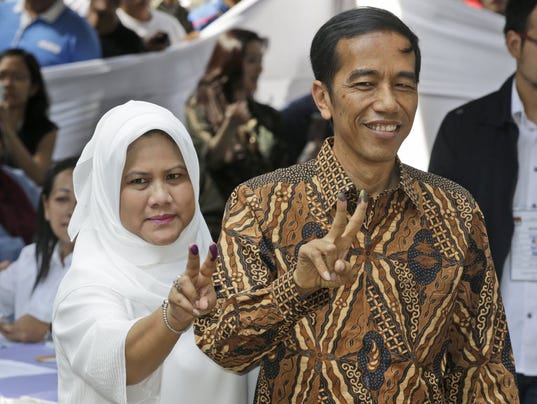The US State Department has established that the weapon
used to down the Malaysian airliner was an R-1 rocket, known to the Russians as
SA-11 (a weapon made by the Soviets, based on the V-2 rocket), and that it was
used by separatist rebels who
knew what they were doing (at least as far as handing and operating the
weapon). We now know for sure it was fired by the pro-Russian Ukrainian rebels
in Eastern Ukraine.
Petr Poroshenko has stated that while the rebels in
Ukraine were known previously as “terrorists” in Ukraine, they will now be
known as terrorists to the world. Indeed, after reports of separatists looting
the bodies, a Ukrainian government official warned the relatives of the
victims that looters have made off with credit cards, and asked that the
relatives of the deceased cancel the credit cards lest they become assets of
“terrorists.” Personally, my initial reaction to the Ukrainian government’s use
of the term “counter-terrorism” to describe military operations against
separatists this past spring was a little heavy-handed. I personally believed
that the term “counter-terrorism” was deliberately used to get the backing of
the West, particularly the US, which has been focusing on counter-terrorism in
its own right for over a decade.
The consensus seems to be that this was not a deliberate
act of terrorism, but rather was a horrible accident, perhaps not dissimilar to
the crash in 2010 of a plane in Smolensk, Russia, which was carrying many of
Poland’s top brass. It was a messy, highly contentious affair not only because
of what happened, but the aftermath of trying to conduct an independent and
unbiased investigation. One thing that distinguishes the shooting-down of the
Malaysia Airlines flight, however, is that now the pro-Russian rebels have
possibly not only lost any support they may have had from analysts and the
public at large, they may also end up losing some of their support from Russia,
as well.
Anna Dyner of the Polish Institute of International
Affairs asserts
that the attack on the airliner does not seem to be deliberate, but that Russia
is nevertheless at least partially to blame for the incident. Even if the
attack on the civilian airliner was not deliberate, a position which British
Prime Minister David Cameron seems
to be taking, the armed groups in Ukraine’s east have sent a very clear
message: we are not without the capabilities to do major destruction to
innocent civilian targets. Whoever was operating the launch system was trained in how to use it, even
though, as US Intelligence officials have
announced, the people operating it were nevertheless poorly trained.
Some figures, such as The
Nation’s Bob Dreyfus, places
blame for the tragedy squarely on the shoulders of Vladimir Putin. Russian
papers and media outlets, of course, are painting a much
different version of the events. Indeed, many in the area of the crash are supporting
the version of events coming from Moscow. Unfortunately, no incident like
this will be devoid of opportunism, propaganda and a chance for the conflicting
sides to undermine each other.
One thing that is certain is that the tragedy involving
Malaysia Airlines flight MH17 indicates how incidents which occur in seeming
distant corners of the globe have not only broad international implications
(that, frankly, has never been anything new) but that they now entail a broad
scope of international involvement. Earlier this year, when over 200 schoolgirls
were kidnapped by the insurgent group Boko Haram in Nigeria, a host of
countries, including the United Kingdom and the United States, sent military
and intelligence officials to help relocate the victims of Boko Haram’s
kidnapping. Now we are seeing, once again, the involvement of investigators
from several other countries in this current incident. To be sure, there were
Americans, Britons and Canadians on board, too, but it almost now goes without
saying that most of the victims abroad MH 17 were Dutch nationals.
The involvement of so many in the ensuing investigation
of the crash, I believe, demonstrates an underlying tension which characterizes
international relations in general. As I have pointed out in previous blog
posts, there are two main schools of thought in this field: liberalism (the
idea that countries can cooperate) and realism (the notion that all countries
only seek their own interests). What seems to be occurring is that, while there
is definitely a lot of genuine goodwill and benevolence on the part of those
participating in the investigation, this incident unfortunately also provides
both sides of the conflict and their major backers with a chance to engage in a
propagandistic battle of wills. All the while, it is the families and friends
of the victims who, to put it colloquially, get the shaft.
There has been no shortage of coverage of the situation
in Ukraine since March on a variety of media outlets and in particular social
media. So the downing of MH 17 will not necessarily create more attention for
Ukraine, as there really has not been a lack thereof. Nor will this likely be
the much-touted “game changer” for Russia and the pro-Russian separatists some
have speculated on. But what this does mean is that involvement in the Ukraine
crisis for countries and groups outside of Eastern Europe will comprise more
than just diplomatic action. This incident now has financial and security
implications. There is talk of increased
sanctions against Russia, not to mention the potential financial blowback
against Malaysia Airlines, which has now encountered a second major tragedy
this summer alone.
Thus, with the downing of
MH17, much of the world went from being mere spectators to being more directly
involved and affected by the crisis in Ukraine.
Our thoughts are
with all of those who lost loved ones on July 17 as a result of the shooting
down of Malaysia Airlines Flight 17.
















